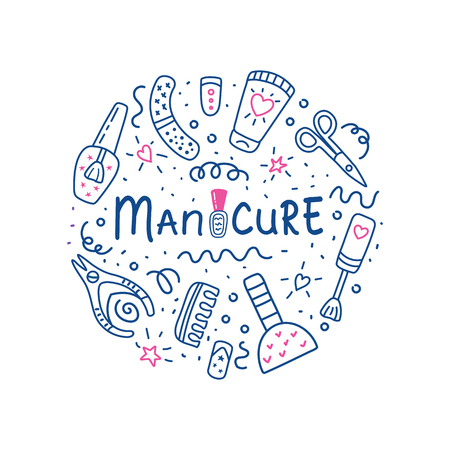Introduction: The Rise of Collagen Supplements in the U.S.
In recent years, collagen supplements have exploded in popularity across the United States, showing up everywhere from trendy wellness shops to mainstream grocery aisles. As American consumers become more health-conscious and eager to slow down the visible effects of aging, collagen has turned into a go-to ingredient for skin support. But not all collagen is created equal—while browsing supplement labels, you’ll quickly notice two main sources: marine (from fish) and bovine (from cows). This growing interest sparks a lot of questions about which type delivers better results, especially when it comes to skin benefits. Understanding what sets marine and bovine collagen apart is essential if you want to make an informed choice that fits your lifestyle and beauty goals.
2. Sourcing Spotlight: Where Do Marine and Bovine Collagen Come From?
When it comes to choosing a collagen supplement for skin benefits, understanding where your collagen actually comes from can make a big difference—not just for your health, but also for the planet. Let’s break down the key differences between marine and bovine collagen sources, considering sustainability, dietary preferences, and environmental impact.
| Type | Source | Sustainability | Dietary Considerations |
|---|---|---|---|
| Marine Collagen | Fish skin, scales, and bones (often byproducts from the fishing industry) | Generally considered more sustainable as it utilizes parts of fish that might otherwise go to waste; however, overfishing concerns may apply depending on sourcing practices | Pescatarian-friendly; not suitable for vegans/vegetarians; often preferred by those avoiding land animal products |
| Bovine Collagen | Cow hides and bones (byproducts of the beef industry) | Sustainability varies widely; large-scale cattle farming is linked to significant environmental impacts like deforestation and greenhouse gas emissions | Not suitable for vegetarians or those avoiding red meat; typically kosher and halal options are available with specific certifications |
From a consumer perspective, if you’re looking for a more environmentally responsible option, marine collagen tends to have a lighter footprint—especially when sourced from wild-caught fish and reputable suppliers who value traceability. On the flip side, if you follow a strict pescatarian or have religious dietary restrictions, sourcing really matters. For instance, some people prefer marine collagen because it avoids land-animal-based ingredients entirely. Meanwhile, those comfortable with beef-derived products may lean toward bovine collagen for its widespread availability and established track record in supplements.

3. Bioavailability and Absorption: Does Source Matter for Your Skin?
When it comes to getting the most out of your collagen supplement, bioavailability is a big deal—basically, it’s how well your body can actually absorb and use what you’re taking. Marine collagen is often praised for its smaller peptide size, which makes it easier for your digestive system to break down and absorb. In fact, marine collagen peptides are generally considered more bioavailable than those from bovine sources. That means when you take marine collagen, more of those skin-loving nutrients could actually make it into your bloodstream and get put to work where you want them—like supporting smoother, firmer skin.
Bovine collagen, on the other hand, is made up of larger peptide molecules, so your body has to work a bit harder to break them down. While that doesn’t mean bovine collagen isn’t effective, it might take longer to see visible results on your skin or you may need a higher dose to get the same benefit as marine collagen. If you’re looking for noticeable changes like improved hydration or reduced fine lines, this difference in absorption can really matter.
Real talk from a consumer perspective: if you’re investing in a daily collagen routine for better skin, you probably want something that works efficiently and doesn’t go to waste. Many Americans find that marine collagen fits into their busy lifestyles because it dissolves easily in drinks and is gentle on the stomach. But at the end of the day, everyone’s body is unique—what works best for one person might not be perfect for another. Still, if quick absorption and maximum impact are high on your wishlist, marine collagen definitely has an edge over bovine when it comes to bioavailability and potential skin benefits.
4. Skin Benefits: How Do Marine and Bovine Collagen Stack Up?
When it comes to choosing between marine and bovine collagen for skin benefits, most Americans want the real scoop—not just marketing hype. Let’s break down what the research and actual users say about how each type impacts your skin’s elasticity, hydration, and overall glow.
Research-Backed Results
Clinical studies suggest both types of collagen can help improve skin quality, but there are subtle differences in how they work. Marine collagen—sourced from fish—is rich in Type I collagen, which is the primary type found in our skin. That means it may be especially effective at supporting smoother, firmer skin. On the other hand, bovine collagen, derived from cows, contains both Type I and Type III collagen. This combo can benefit not just skin, but also hair and nails.
Comparing Skin Improvements
| Collagen Source | Main Collagen Types | Key Skin Benefits | User Feedback (US Market) |
|---|---|---|---|
| Marine Collagen | Type I | Boosts elasticity Improves hydration Reduces fine lines faster |
Loved for light texture and quick absorption; popular among those with sensitive digestion or pescatarian diets. |
| Bovine Collagen | Types I & III | Supports firmness Enhances resilience Good for overall skin health |
Praised for visible results on skin and nails; some users note a heavier taste and longer time to see changes. |
The Consumer Perspective
Real feedback from American consumers highlights that marine collagen tends to get more love for fast hydration boosts and minimal aftertaste—think easy-to-mix powders in your morning smoothie. Bovine collagen users often report stronger nails and hair along with gradual improvement in skin plumpness, though some mention a “beefy” flavor if not masked well in recipes.
If you’re laser-focused on dewy, hydrated skin with fewer fine lines, marine collagen might be your go-to. But if you want comprehensive beauty support—including thicker hair and tougher nails—bovine offers broader benefits. At the end of the day, it comes down to your personal goals and dietary preferences.
5. Allergies, Sensitivities, and Lifestyle Choices
When choosing between marine collagen and bovine collagen for skin benefits, U.S. consumers often have to consider more than just efficacy—they need to think about allergies, sensitivities, and their personal lifestyle choices. Marine collagen is sourced from fish skin or scales, which means anyone with a seafood allergy should steer clear. On the other hand, bovine collagen comes from cows, so people with beef allergies or sensitivities will want to avoid those products. For Americans who follow specific dietary restrictions, these sources matter a lot. Many marine collagen products are naturally pescatarian-friendly since they contain no animal derivatives other than fish. Meanwhile, bovine collagen is sometimes preferred by those who avoid seafood for health or ethical reasons.
For consumers concerned about gluten, it’s good news: both marine and bovine collagens are generally gluten-free, but it’s always smart to check product labels for any cross-contamination risk during processing. Religious dietary needs also come into play. Kosher and halal certifications are more commonly found on bovine collagen products because the sourcing and processing can be more tightly controlled under those guidelines. However, some marine collagens are now also available with kosher or halal certification—so check for official seals if this matters to you.
Ultimately, your choice may come down to what fits your body and beliefs best. If you’re looking for a supplement that aligns with a pescatarian diet or you avoid red meat for personal reasons, marine collagen could be your top pick. But if you have a fish allergy or prefer products with widely available kosher/halal certification, bovine collagen might be the safer bet. In the end, transparency from brands regarding sourcing and processing is crucial for making an informed decision that supports both your health goals and your values.
6. Taste, Mixability, and Everyday Use
If you’re considering marine versus bovine collagen for your skin, the day-to-day experience really matters. Let’s start with flavor: many reviewers say that marine collagen has a slight fishy aftertaste, especially in unflavored versions. Some people are sensitive to this and prefer bovine collagen because it tends to be more neutral or even completely tasteless when mixed into coffee, smoothies, or oatmeal. If you’re picky about taste, this can be a dealbreaker. Mixability is another big point: both types generally dissolve well in hot drinks, but marine collagen powders sometimes clump or leave a residue in cold liquids, according to user feedback. Bovine collagen is often described as easier to blend seamlessly into anything from iced coffee to protein shakes. When it comes to convenience, bovine collagen usually wins out for folks who want something undetectable and quick for a busy morning routine. However, some people still choose marine collagen for its pescatarian-friendly profile despite the flavor quirks. Bottom line? If ease of use and taste are high on your list, you’ll probably find bovine collagen fits more effortlessly into daily life—but if you don’t mind a little extra effort (or masking the taste with strong flavors), marine collagen can still work just fine.
7. Cost and Value: Is One Type a Better Deal?
When it comes to choosing between marine collagen and bovine collagen, price is definitely part of the conversation—especially if you’re a savvy shopper who wants visible results without overpaying. Generally, marine collagen tends to be more expensive than bovine collagen in the U.S. This higher cost comes from its sourcing (wild-caught or sustainably farmed fish), more intensive processing, and its buzz as a premium beauty supplement. Bovine collagen, on the other hand, is often less expensive because cows are more abundant and the extraction process is cheaper.
You can find both types online, at health food stores like Whole Foods or Sprouts, and even at big box retailers like Costco or Target. If you’re shopping on Amazon or other e-commerce sites, always check for third-party testing and clear labeling about the source. Don’t let fancy packaging fool you—a higher price tag doesn’t always mean better quality or greater skin benefits.
If you’re watching your wallet but still want to boost your skin’s glow, look for deals on multi-packs, subscription discounts, or bulk sizes. Also, consider what your body actually needs: if you have dietary restrictions or specific absorption concerns, marine collagen might be worth the splurge. But for most consumers looking for general skin support, high-quality bovine collagen could offer similar benefits at a lower price point.
Bottom line? The “better deal” depends on your priorities—ethical sourcing, dietary compatibility, or just stretching your dollar further. Read reviews from real users, compare ingredient lists closely, and remember that consistency matters more than brand hype when it comes to seeing true skin benefits from either type of collagen.


